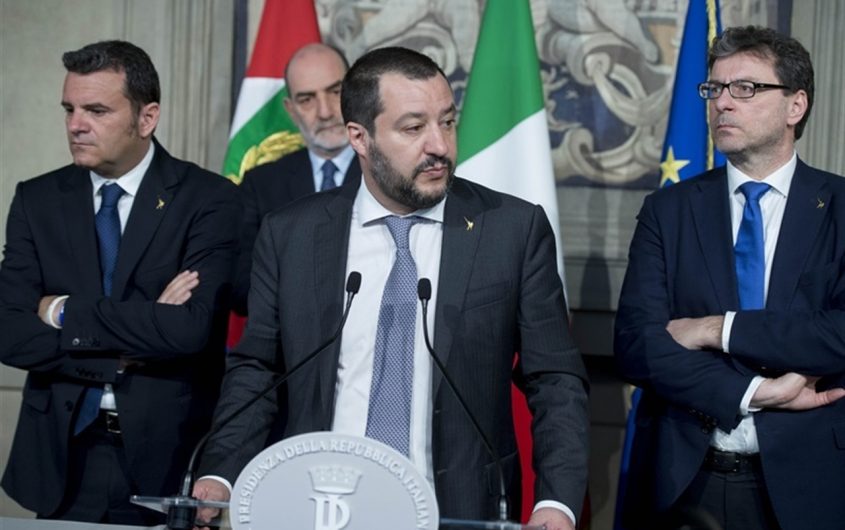
Presidenza della Repubblica via Wikimedia Commons
Populists Keep Winning the Messaging War in Europe Over Migration

Laura Kupe
RAND Corporation
Laura Kupe is a Policy Analyst at the RAND Corporation. She currently serves as a Transatlantic Expert Group Leader for the Truman National Security Project and a Youth Ambassador for Women of Color Advancing Peace, Security, and Conflict Transformation. Ms. Kupe previously served as a Special Assistant at the Department of Homeland Security (DHS) in the Office of International Engagement within the Office of Policy as a presidential appointee in the Obama administration. In her role, she served as a subject-matter expert on the Department’s engagement with European Union (EU) member states and the Five Eyes on topics including immigration/migration, border security, and counterterrorism. Previously, she was detailed to the Office of Presidential Personnel in the White House and served as Domestic Director. Before her detail, she served as the Briefing Book Coordinator to DHS Secretary Jeh Johnson. Prior to her time in the federal government, Ms. Kupe served as a legislative fellow for Congresswoman Karen Bass, Ranking Member of the Africa Subcommittee on the House Foreign Affairs Committee. Her parents are originally from the Democratic Republic of Congo, and she was born in Germany and raised in Luxembourg before moving to the United States. Ms. Kupe speaks fluent German and is a self-proclaimed “Afropean-American.” She graduated with a BA from the University of Michigan and a JD from the University of Michigan Law School.
She is a 2018-2019 participant in AICGS’ project “A German-American Dialogue of the Next Generation: Global Responsibility, Joint Engagement,” sponsored by the Transatlantik-Programm der Bundesrepublik Deutschland aus Mitteln des European Recovery Program (ERP) des Bundesministeriums für Wirtschaft und Energie (BMWi).
European leaders gathered twice last year to try and develop an EU-wide approach to the still-divisive issues of migration and the integration of refugees, and both times they failed to reach any consensus, yet again. Building on public anxieties around migration, far-right populist parties succeeded in sowing more discord across the continent, with many centrist and liberal politicians having difficulty formulating a response.
The effectiveness of these anti-migrant and even nativist campaigns was evident with the controversy over the adoption of the United Nations’ Global Compact on Migration last month in Morocco. The compact initially enjoyed support from all U.N. members, including the United States, when its drafting process was launched in 2016. But the Trump administration pulled the U.S. out of the compact more than a year ago, claiming that numerous provisions in the agreement were “inconsistent with U.S. immigration and refugee policies.”
Continue reading at World Politics Review.
This article was originally published by World Politics Review on January 25, 2019.









